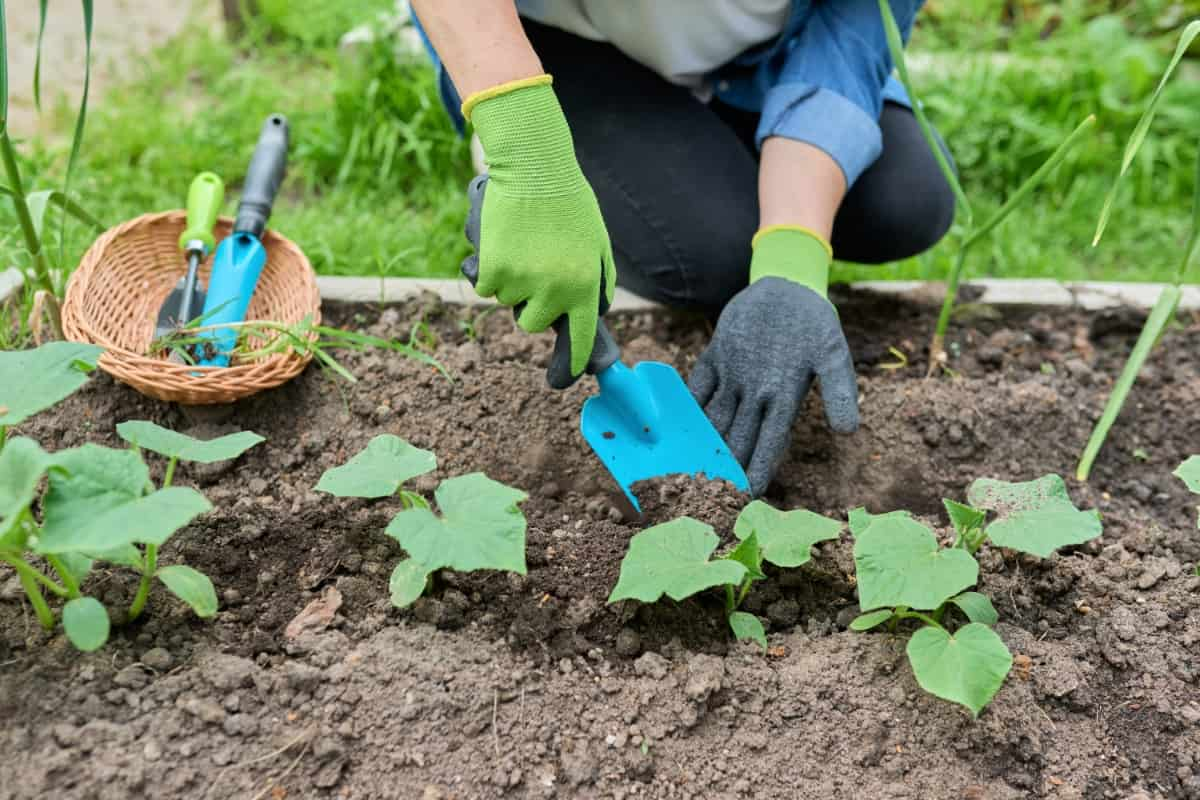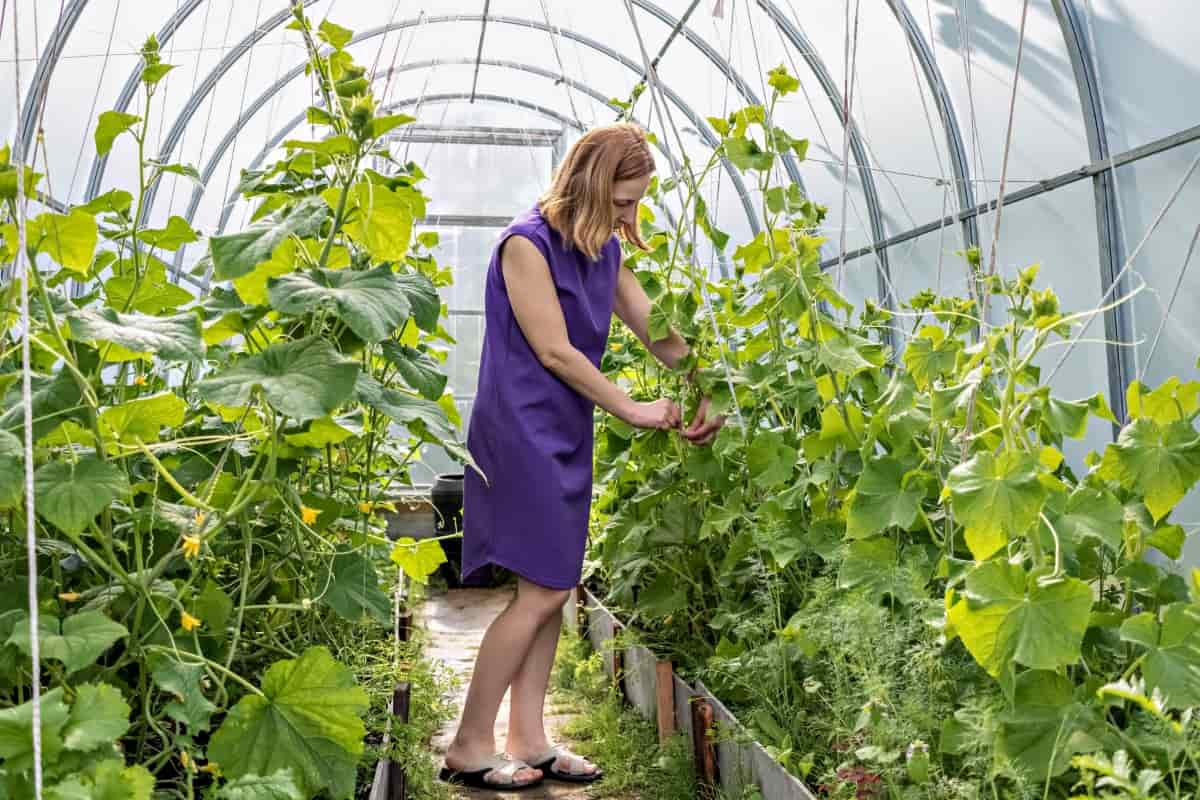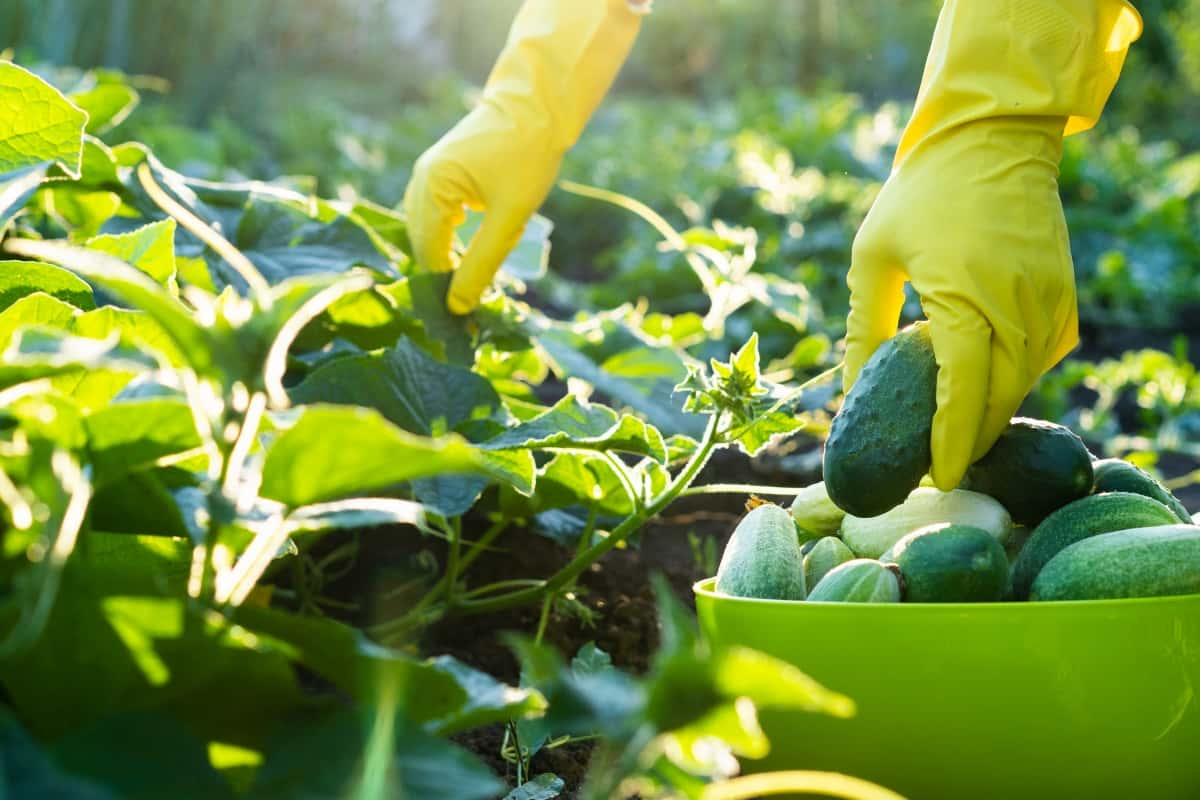Cucumbers, a popular and versatile vegetable, are cultivated in gardens worldwide. This delightful vegetable enjoyed in salads or as a snack, can bring a robust yield if properly taken care of. However, what grows well with cucumber is a common question among gardeners. The answer lies in companion planting, wherein certain plants are grown together for mutual benefits. Companion plants for cucumbers, when chosen correctly, can enhance the growth, yield, and overall health of your cucumber plants.

Benefits of Companion Plants for Cucumbers in the Garden
Companion planting is a time-tested gardening method that uses the natural advantages of certain plants to benefit others. In the context of cucumbers, companion plants offer a range of benefits. Firstly, they can deter pests. Many companion plants have strong scents or other characteristics that repel harmful insects, reducing the need for chemical pesticides. Secondly, some plants help improve pollination, attracting bees and other beneficial insects that cucumbers need for fruit set.
Thirdly, companion planting can lead to better use of space and resources. Some plants have different growth habits or root depths, allowing them to grow well together without competing for space or nutrients. Additionally, specific plants, particularly herbs, have properties that enhance the flavor and growth of cucumbers. Lastly, certain companion plants can improve soil fertility by fixing nitrogen or adding organic matter. Understanding what you should not plant next to cucumber is crucial to avoid detrimental effects.
Best Companion Plants for Cucumbers to Deter Pests
Certain companion plants are especially beneficial for cucumbers when deterring pests. Marigolds, for example, are an excellent companion plant. They produce a strong odor that repels many common garden pests, including aphids, beetles, and nematodes. Similarly, nasturtiums repel cucumber beetles and aphids, which can wreak havoc on cucumber plants. Borage is another beneficial companion plant, as it repels tomato hornworms and cabbage worms, which can also affect cucumbers. However, some bad companion plants for cucumbers, such as sage, potatoes, and rue, can attract pests or compete with cucumbers for nutrients.
Cucumber Companion Plants for Improved Pollination
Pollination is critical for fruit set in cucumbers, and certain companion plants can help attract pollinators to your garden. Flowers such as sunflowers, calendula, and zinnia are excellent at attracting bees and butterflies, improving pollination rates for your cucumber plants. Planting these around your cucumber patch can significantly enhance your yield. Companion herbs like dill and fennel can also attract beneficial insects, aiding in pollination.
In case you missed it: When to Transplant Cucumber Seedlings: 9 Things to Check Before Your Start Growing

Companion Plants for Cucumbers in Containers
Growing cucumbers in containers offer flexibility and control over the growing conditions. Certain companion plants are particularly well-suited for container growing alongside cucumbers. These include compact herbs such as basil, which can deter pests and improve cucumber flavor. Similarly, dwarf marigold varieties can provide the same pest-deterrent benefits in a container as in the ground. Radishes, another great companion plant, can share the container with cucumbers without competing for resources, and they also deter harmful beetles.
Companion Herbs for Cucumbers in Organic Gardening
In organic gardening, herbs play a significant role as cucumber companion plants due to their pest-deterrent properties and ability to enhance growth and flavor. Dill and basil are excellent choices; they repel pests while improving cucumber health. Chamomile and oregano also have strong scents that deter pests and can help enhance the flavor of your cucumbers.
Flowering Companion Plants for Cucumbers to Attract Beneficial Insects
Flowering plants are aesthetically pleasing and can serve as effective cucumber companion plants. Flowers such as marigolds, nasturtiums, and sunflowers can deter pests and attract beneficial insects, improving the health and yield of your cucumber plants. They also contribute to the biodiversity of your garden, encouraging a healthier ecosystem overall.
Companion Vegetables for Cucumbers in Raised Beds
Raised bed gardening is a popular method due to its benefits of improved soil control and drainage. Corn and beans are among the best companion plants for cucumbers in raised beds. Corn provides a natural trellis for cucumbers to climb, while beans help enrich the soil with nitrogen, benefiting the cucumbers. Radishes, peas, and lettuce also make good companions, offering ground cover and improving soil health while not competing for resources.
In case you missed it: Hydroponic Cucumber Farming in a Greenhouse: Key Rules to Start from Scratch

Companion Plants for Cucumbers to Improve Soil Fertility
Certain companion plants for cucumbers are known for their ability to enhance soil fertility. Legumes, like peas and beans, provide cucumbers with essential nitrogen in the soil for healthy growth. Additionally, plants like radishes and marigolds can help break up the soil, improving its structure and drainage, which cucumbers appreciate.
Companion Plants Chart for Cucumbers in the Garden
Finally, a companion plants chart for cucumbers in the garden can serve as a useful reference for gardeners. It should include beneficial companions like beans, corn, peas, radishes, sunflowers, marigolds, nasturtiums, borage, dill, basil, chamomile, and oregano. It should also mention plants to avoid near cucumbers, such as sage, potatoes, and rue. Having such a chart handy can help ensure the health and success of your cucumber plants, offering a holistic view of the benefits and potential pitfalls of companion planting.
Companion Planting Strategies for Cucumbers
Implementing companion planting in your garden involves more than knowing which plants pair well with cucumbers. Careful planning and grasping plant interactions are essential. The first step is to assess your garden space. Consider the amount of sunlight, soil type, and area size. This will help you choose companion plants that benefit cucumbers and thrive in the same conditions.
For example, companion plants like beans and sunflowers would be a good fit if you have a sunny garden with well-drained soil. The second step is to plan your planting schedule. While cucumbers and their companion plants can thrive together, they may not have the same growth rates or planting times. For instance, beans and corn, which are great companions for cucumbers, should be established before you plant them to ensure they provide the necessary shade and support.
In case you missed it: How to Increase Female Flowers in Cucumber: Explained in 10 Simple Steps

Conclusion
Companion planting is a valuable tool for maximizing the growth and yield of cucumbers. It utilizes the symbiotic relationships between plants to boost overall garden health, providing natural pest control, improved pollination, and better nutrient utilization. However, it’s important to understand that not all plants make good neighbors.
Carefully considering what you should not plant next to the cucumber can prevent potential pitfalls and harmful interactions. As gardening is as much an art as a science, experimenting with different combinations and observing what works best in your garden setting can lead to surprising and fruitful results.
- Feed Your Flock for Less: Top 10 Tips to Save on Chicken Feed
- Ultimate Guide to Ossabaw Island Hog: Breeding, Raising, Diet, and Care
- Hatching Answers: The Top 10 Reasons Your Chickens Aren’t Laying Eggs
- Eggs and Economics: Breaking Down the Cost of Raising Backyard Chickens
- Defend Your Greens: Proven Methods to Keep Iguanas Out of Your Garden
- Ultimate Guide to Cinnamon Queen Chicken: A Comprehensive Guide for Beginners
- Ultimate Guide to California Tan Chicken: Breeding, Raising, Diet, Egg-Production and Care
- Ultimate Guide to Marsh Daisy Chicken: Breeding, Raising, Diet, and Care
- 10 Types of Chicken Farming Businesses You Can Start for Profits